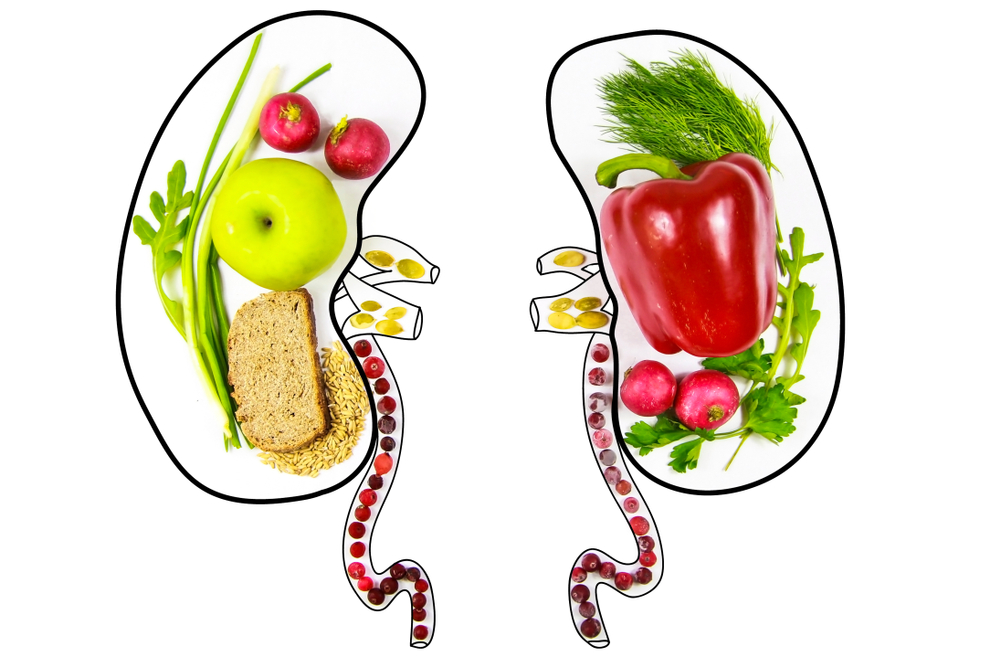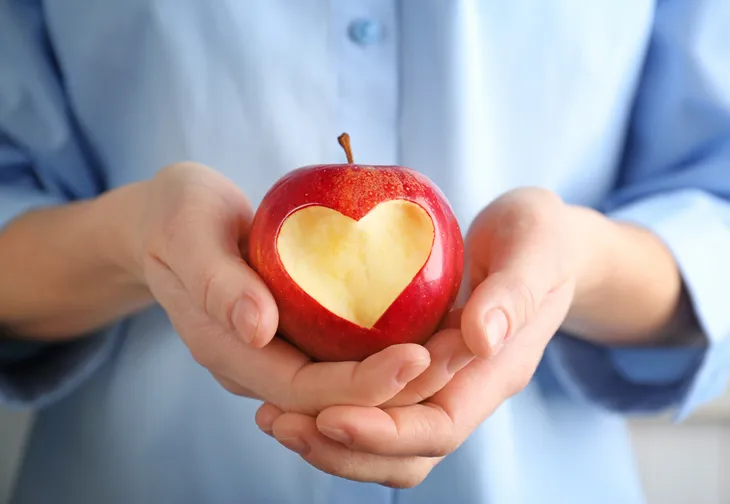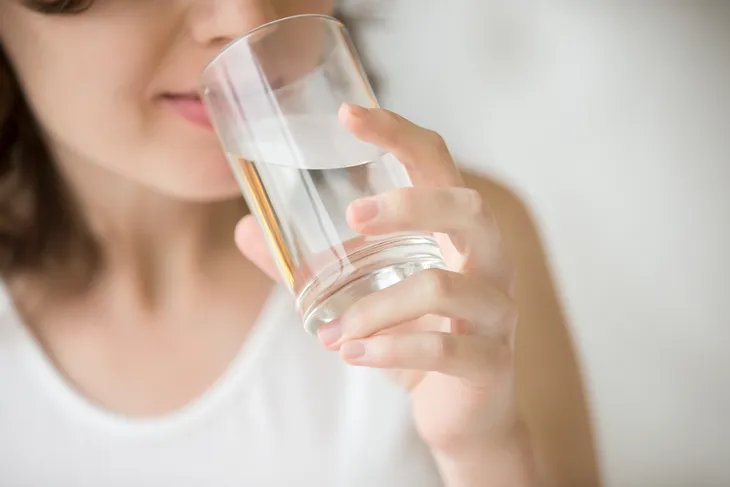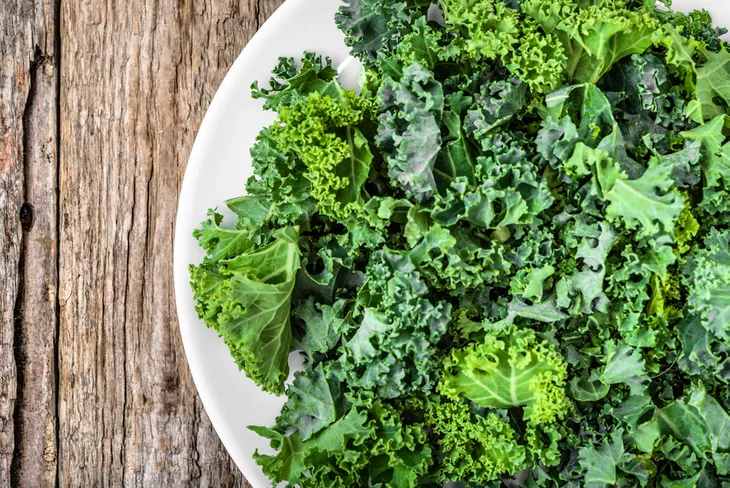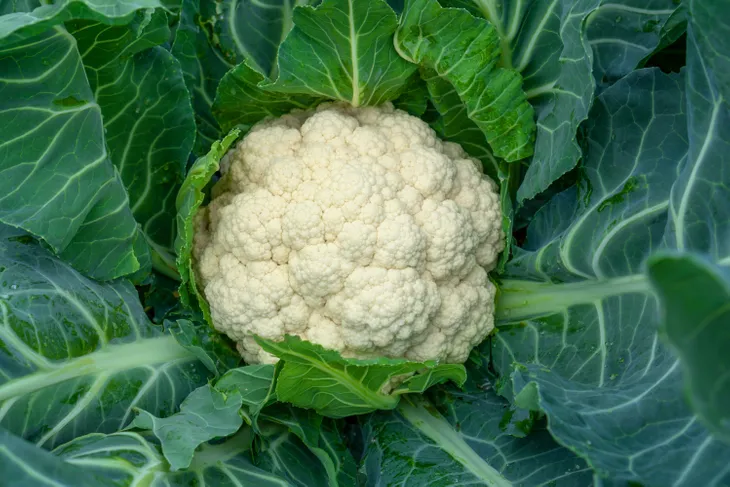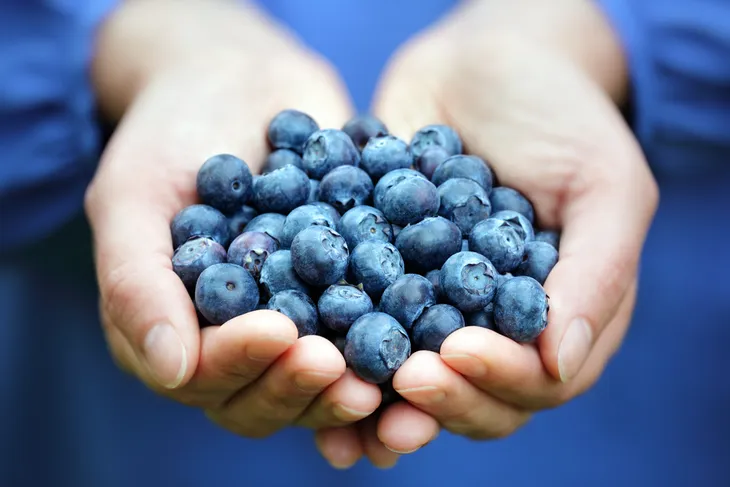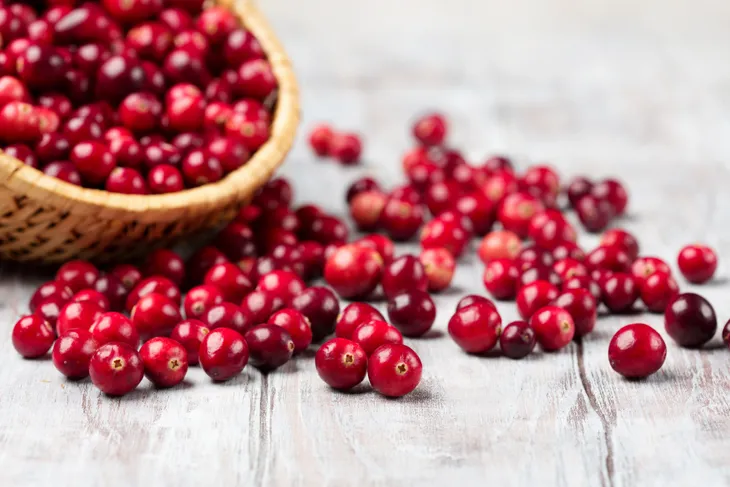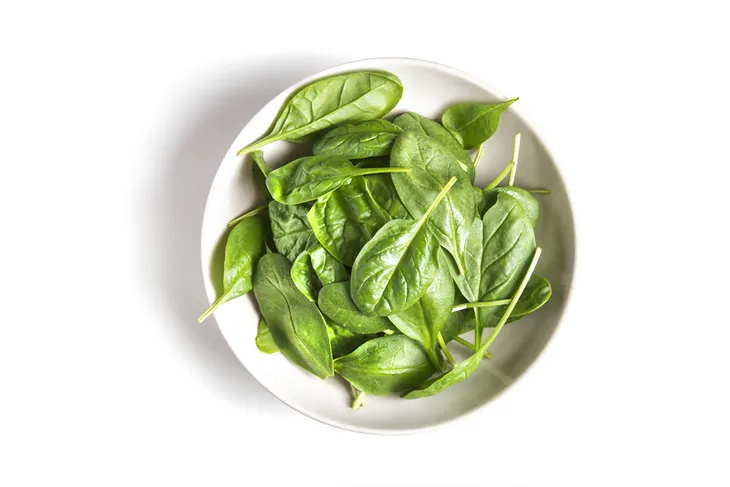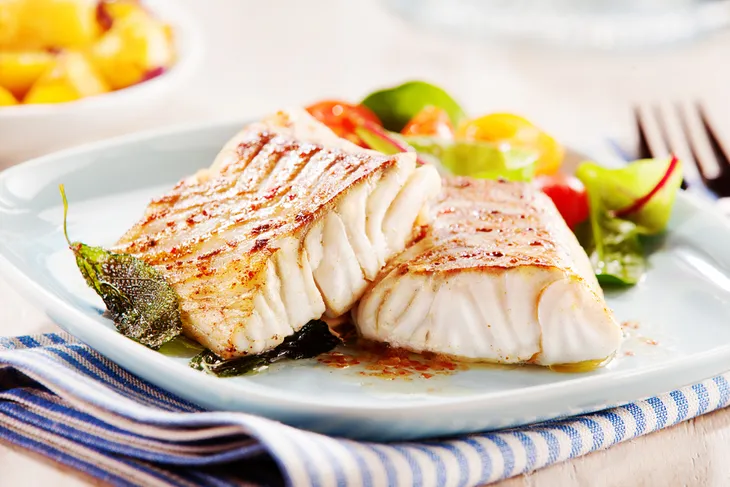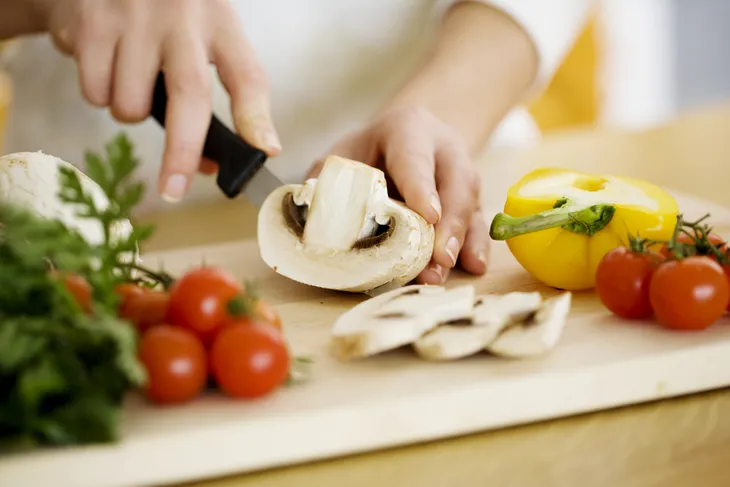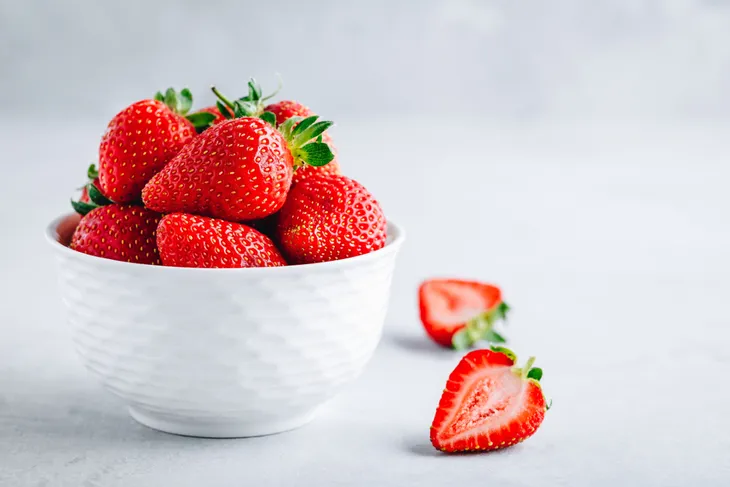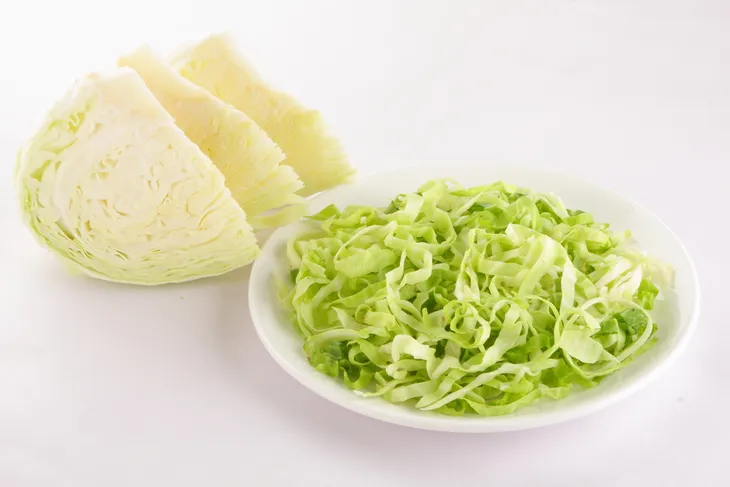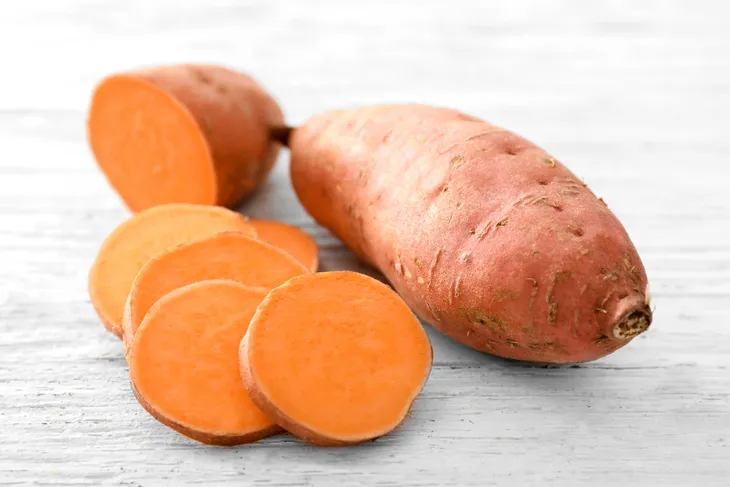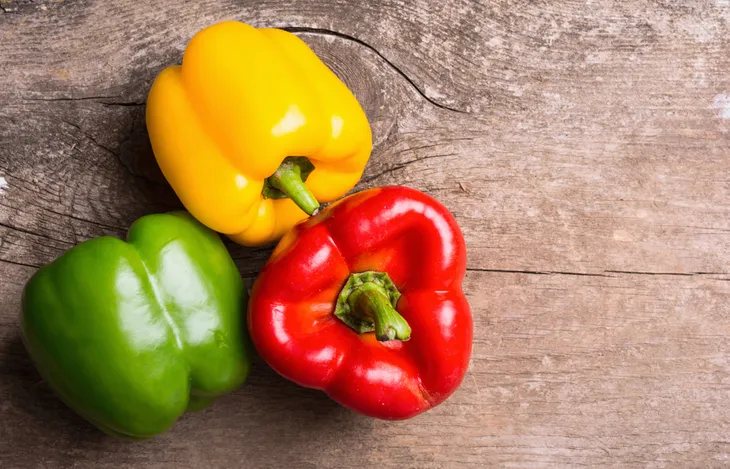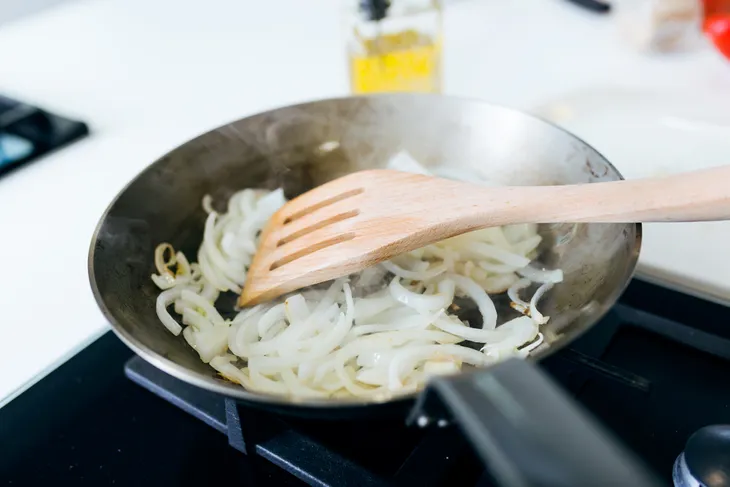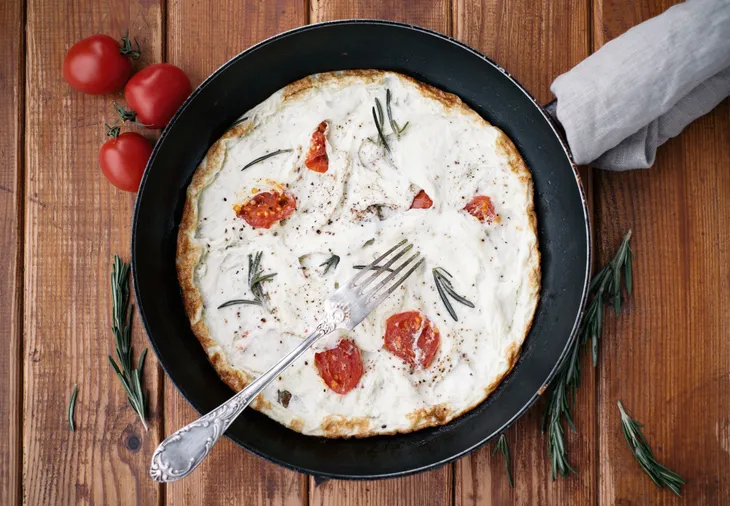The kidneys have an extremely important job. We all have two bean-shaped organs located below our ribs and on either side of our spine. They are responsible for filtering our blood, removing wastes, controlling the body’s fluid balance, and maintaining a healthy level of electrolytes, explains WebMD. Our kidneys are responsible for filtering all of the blood in our body several times a day.
Millions of people in America suffer from kidney problems, and oftentimes they don’t even realize it because they don’t always present obvious symptoms. This is why it’s super important for us to take good care of our kidneys. One of the best ways to do this is by eating an overall healthy diet. If you want to take it a step further, we’ve compiled a list of the absolute best foods for the kidneys based on their specific health benefits. To improve your kidney health, start eating more of these 15 foods…
Think you may have a kidney problem? Try Stone Breaker Natural Kidney Cleanse & Gallbladder Formula – an Amazon 4.5+ star best-seller with over 1,700 consumer ratings. (As an Amazon associate, this site earns from qualifying purchases).
Want diet & nutrition content delivered straight to your inbox? Sign up for our exclusive diet & nutrition newsletter!
Apples
Ever heard the saying, “an apple a day keeps the doctor away?” Well, apparently it’s true! At least when it comes to our kidneys. Apples are one of the best foods for our kidneys because they contain pectin, “a soluble fiber that can lower cholesterol and glucose levels,” writes the National Kidney Foundation. Pectin may also be able to reduce any risk factors that could potentially damage the kidneys, like high blood pressure or cholesterol.
Apples are super easy to integrate into your diet because they make for a great snack. If you’re someone who likes to peel their apple before eating it (which is unlikely, but you never know), then consider keeping the peel on because that is where a lot of the antioxidants are, including quercetin which is believed to protect our brain cells. Apples are also a good source of vitamin C.
Water
Most people don’t drink enough water throughout the day, myself included! This is a shame because drinking water throughout the day provides so many great and necessary benefits to our body, including to our kidneys. Water is necessary for our cells to transport toxins into the bloodstream. “The kidneys then use water to filter these toxins out and to create the urine that transports them out of the body,” writes the Medical News Today.
If you find that you’re feeling thirsty throughout the day, reach for water before anything else. StyleCraze advises women to drink 8 glasses of water a day, and 13 for men. If you can’t consume that many, aim for at least a few glasses to keep your mind and body healthy. It’s important to note that the amount of water needed throughout the day also depends on your level of activity and the condition of your kidneys. Talk to your doctor to find out more.
Kale
Kale is one of those superfoods that is constantly raved about for its nutritional benefits, and for good reason! This leafy green is packed with vitamin A, K, and C, as well as calcium and many important minerals, says the National Kidney Foundation. It provides carotenoids and flavonoids which directly benefit our eye health, while also protecting us from cancer. It’s important to note that because kale is high in vitamin K, anyone taking blood thinners (ex. warfarin) should speak to their doctor before eating a diet with lots of this vitamin.
One of the best things about kale is that it’s peak season is in the winter which means it’s a great choice when all the other veggies are a little more sparse (or expensive). Eating kale doesn’t have to be boring or plain, you can spice things up by baking this veggie into chips, mix it into a smoothie, or a decadent salad.
Cauliflower
Cauliflower is one of the most nutritious vegetables to consume because it’s high in nutrients like vitamin C, K, and the B vitamin folate, says Healthline. In addition to that, it also contains lots of anti-inflammatory compounds like indoles and fiber.
It doesn’t take much to get a healthy dose of nutrients. Healthline writes that just 1-cup of cooked cauliflower amounts to about 30-mg of sodium, 320-mg of potassium, and 47-of phosphorus. You can also mash it so that it can be used as a substitute to mashed potatoes, or get creative by making dishes like buffalo cauliflower or cauliflower pizza crust!
Blueberries
Even though these berries are small, don’t underestimate their power! Blueberries are one of the best foods out there for their antioxidant value. The National Kidney Foundation points out that not only are blueberries low in calories, they are also a great source of fiber and vitamin C. They have so many amazing health benefits, right now they are being studied for their ability to protect against cancer and heart disease, as well as any brain health benefits.
When it comes to the kidneys, blueberries are a friendly choice because they are low in sodium, phosphorus, and potassium. Healthline points out that just 1-cup of blueberries will provide 1-mg of sodium, 114-mg of potassium, and 18-mg of phosphorus.
If you want to start eating more blueberries, research where the closest farmers’ market is, or just pick them up at your local supermarket. Plus, you don’t have to give them up during the off season! Pick them up frozen because they taste just as good and pack benefits similar to fresh blueberries. Mix them into a smoothie or sprinkle some on top of cereal, oatmeal, or even some yogurt.
Cranberries
When it comes to health, cranberries are probably better known for helping with urinary tract infections (UTI) than they are for kidneys, but they can benefit both! Cranberries can help protect the kidneys from damage and are great for preventing or managing ulcers and bacteria. “These tiny, tart fruits contain phytonutrients called A-type proanthocyanidins, which prevent bacteria from sticking to the lining of the urinary tract and bladder, thus preventing infection,” explains Healthline. This is important for people with kidney disease because they are more prone to developing UTIs.
To include more cranberries in your diet, try eating them dried, cooked, fresh, or as a juice. Healthline notes that they are low in potassium, phosphorus, and sodium which makes them super kidney-friendly.
Spinach
Similar to kale, spinach is well recognized for its incredible health benefits. It’s chock full of vitamin A, C, K, and folate. “The beta-carotene found in spinach is important for boosting your immune system health and protecting your vision,” writes the National Kidney Foundation. It’s also got lots of magnesium.
To add spinach into your diet, you can throw together a quick side salad to any dish, steam it and spice it up with garlic and olive oil, or even blend it into a healthy smoothie.
Fish
Omega-3 fatty acids are great for kidney health and since our body can’t make them on its own, the best way to get them is through eating foods like salmon, mackerel, albacore tuna, herring, and sardines. Fish that is high in omega-3 fatty acids may be able to help the body with blood clotting and build cell membranes in the brain. They’re also a great source of healthy fats, says Medical News Today.
According to the National Kidney Foundation, omega-3 fatty acids have been proven to “decrease risk of abnormal heartbeats, decrease triglyceride levels and slightly lower blood pressure.” They are currently being researched for their benefits toward cancer, autoimmune diseases, and inflammatory bowel diseases.
Mushrooms
Shiitake mushrooms are a great source of protein, especially for anyone who is on a plant-based diet. They also contain lots of dietary fiber, B vitamins, copper, manganese, and selenium, says Healthline.
Another great aspect of mushrooms in general is that they contain vitamin D. Anyone with chronic kidney disease (CKD) knows how important this vitamin is, explains Life Line Screening. The best ways to get it are through diet or supplements (but it can also be absorbed from the sun). Their vitamin D content allows them to regulate kidney function making them one of the best foods for the kidneys.
Strawberries
I don’t think I’ve ever met someone who didn’t like strawberries so it shouldn’t be hard to convince anyone to eat more of this delicious fruit! Strawberries are full of antioxidants, vitamins, and fiber. According to research, the fiber and nutrients found in strawberries can help protect the heart, fight off cancer, and contain anti-inflammation properties.
There are so many different ways to eat strawberries which makes it even easier to start. You can eat them on their own, in a smoothie, on a salad, or topped on some cereal, yogurt, or oatmeal.
Cabbage
Cabbage is part of the cruciferous vegetable family, along with Brussel sprouts, broccoli and cauliflower. This unique veggie provides “vitamins, minerals, and powerful plant compounds,” writes Healthline. You can also obtain vitamin K, C, and many different B vitamins from eating cabbage. It also provides insoluble fiber, “a type of fiber that keeps your digestive system healthy by promoting regular bowel movements and adding bulk to stools.”
What it has in common with many of the other foods on this list is that it’s low in sodium, potassium, and phosphorus, so it’s safe to eat when it comes to our kidney health.
Sweet Potatoes
Potatoes probably aren’t the first thing that comes to mind when thinking of healthy foods, but believe it or not, sweet potatoes make the cut! While they are similar to white potatoes in a lot of ways, sweet potatoes have more fiber which means they are broken down slower in the body. These spuds are also packed with beta-carotene (which is how they get that bright orange color) and also contain vitamin A and C. In addition to all that, they are a good source of potassium and vitamin B-6, says the National Kidney Foundation. Their potassium content may help the body with balancing sodium levels and “reduce its effect on the kidneys,” explains Medical News Today.
To get a healthy dose of benefits, the USDA National Nutrient Database recommends eating one medium (5-inch long) sweet potato. By doing this you’ll consume nearly 4-grams of fiber at only 112 calories. Eating this food doesn’t have to be boring. You can try mashing them or even slicing them up and baking them into little fries!
Bell Peppers
Pretty much all bell peppers are good for us and our kidneys. They are loaded with nutrients, but low in potassium. This is important for our kidneys and unfortunately, we can’t say the same for all other vegetables. That’s why bell peppers in particular are specifically good for our kidneys. They come in an array of different colors and are loaded with antioxidants like vitamin C. Even if you eat just one small red bell pepper, you’ll get 200-percent of the recommended daily dose of vitamin C.
“They are also loaded with vitamin A, an important nutrient for immune function, which is often compromised in people with kidney disease,” writes Healthline.
Onions
Onions are a cooking staple! They are super healthy because they give flavor to our cooking without adding sodium. A diet low in sodium is super important for people with kidney problems, so finding sodium-free alternatives is a must. This is where onions come in! “Sauteeing onions with garlic and olive oil adds flavor to dishes without compromising your kidney health,” writes Healthline.
In addition to their sodium-free benefits, onions are high in vitamin C, manganese, and B vitamins. They also contain “prebiotic fibers that keep your digestive system healthy by feeding beneficial gut bacteria.”
Egg Whites
Breakfast is the most important meal of the day. Make it even more beneficial by eating egg whites! Egg whites provide a high quality protein that is also kidney-friendly. The only downside to eggs is their yolk, which is why we’ve only listed egg whites on here. Egg yolks can be nutritious, but they are high in phosphorus which can be dangerous for people with kidney disease.
In addition to being a good source of protein, egg whites are great for people going through dialysis treatment, “as they have higher protein needs but need to limit phosphorus,” says Healthline.
If you’re not a huge fan of eggs, you can also get a healthy dose of protein from skinless chicken.
